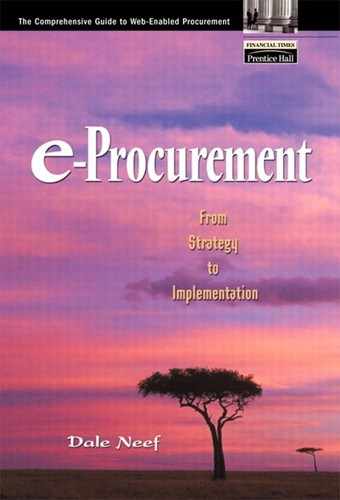Chapter 7. Standards
ObjectiveThe development of new communications standards that allow buyers and sellers to transmit important purchasing transaction data easily and securely has been a critical element in the successful development of e-procurement systems:
|
As with every movement in the information technology arena over the past 45 years, the need for interoperability between competing hardware and software platforms means that agreement on industry standards for communications has become of paramount importance. But unlike most media (email, video, etc.) carried over the Internet today, business documents have traditionally lacked agreed standards, particularly with regard to ordering and invoicing information. It is safe to say that any company that can afford to have an EDI link probably already has it. In fact, only 300,000 firms worldwide have ever adopted EDI. Today, most companies have, or will soon implement, some form of ERP system, and it is the need to integrate procurement data—item numbers, descriptions, contracts, prices, invoice details—with those back-end systems that makes broad agreement on industry standards essential.
It is safe to say that any company that can afford to have an EDI link probably already has it. In fact, only 300,000 firms worldwide have ever adopted EDI.
